How Often Do Water Heaters
Need to be Replaced?
Homeowners often underestimate the significance of maintaining their water heaters until they face the inconvenience of running out of hot water unexpectedly. To avoid such inconvenient and potentially hazardous situations, it is crucial to prioritize the proper care of your water heater. In this comprehensive guide, our reliable plumber, specializing in water heater repair and replacement, will elaborate on the signs that indicate the necessity for a replacement. Additionally, we'll explore essential factors to consider when purchasing a new system. Keep reading to discover how you can guarantee a consistent supply of hot water for your family's comfort.

How long do water heaters last?
Hot water heaters are essential appliances that significantly impact our daily routines, supplying hot water for showers, laundry, and dishwashing. Like any other device, their lifespan can be affected by several factors. On average, a hot water heater tends to last between 8 to 12 years before needing replacement. Regular maintenance and being mindful of usage patterns can help extend the life of your water heater and ensure its efficient performance throughout its lifespan.
Tankless water heaters usually have a longer lifespan compared to traditional units.
Improper installation or neglecting maintenance can significantly shorten a water heater's lifespan.
Regular upkeep and inspections are vital to maintaining efficiency and extending your water heater's life.
Excessive daily usage and high levels of hard water can accelerate wear and tear, affecting the long-term effectiveness of your unit.

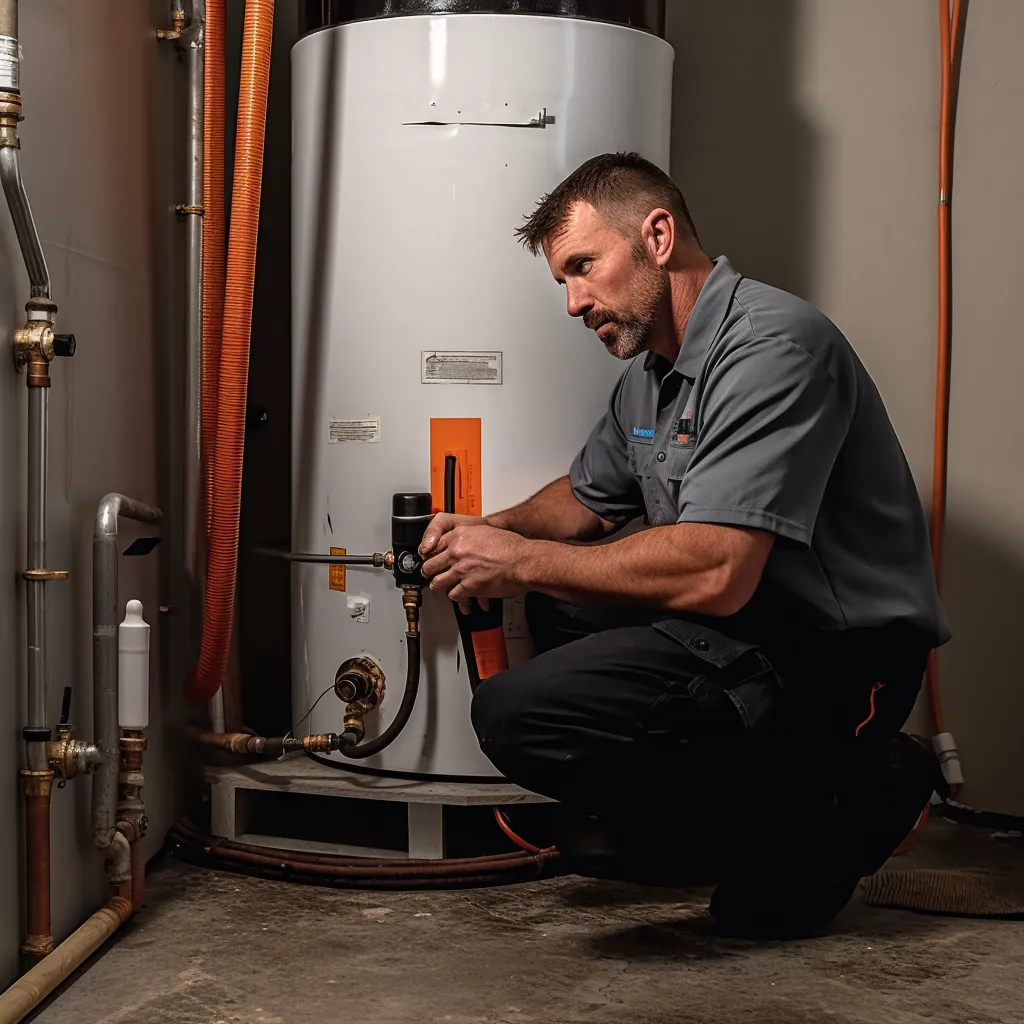
Do you have the budget for a new hot water heater?
Selecting the perfect water heater for your home and budget can feel overwhelming due to the numerous options available. To make the best decision, consider your budget and specific household needs. Factors like energy efficiency, capacity, and compatibility with your lifestyle should be taken into account. While some models may have a higher initial cost, they can lead to considerable energy bill savings in the long run. Investing in a high-quality water heater can result in significant cost savings over time, so take your time and carefully assess all your options before making a final decision.

Replacing a water heater is a big decision
Absolutely, water heater replacement should be a well-considered decision. When choosing a new water heater, several crucial factors should be taken into account, such as efficiency, age, and cost. If your current water heater is over ten years old or frequently requires repairs, it's a clear sign that it might be time to consider upgrading to a more efficient model. Upgrading can enhance the overall performance of your water heater and lead to reduced utility bills, making it a wise investment for the long term.

How to extend the lifespan
of your water heater
To ensure your water heater remains efficient and long-lasting, it's crucial not to neglect maintenance until it breaks down completely. Follow these tips to extend its lifespan and optimize performance:
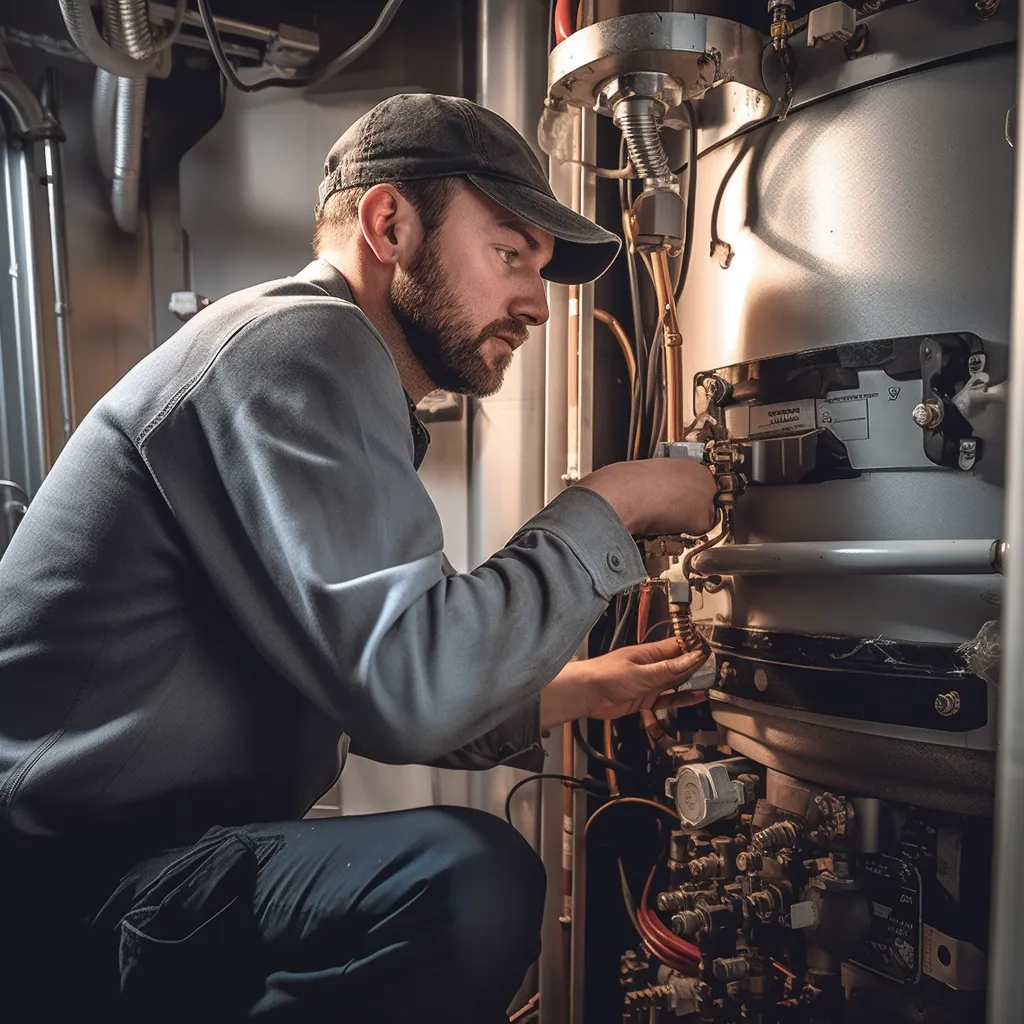
Regular Inspections: Periodically check your water heater for signs of leaks, rust, or corrosion. Early detection of issues can prevent them from worsening.
Flushing Sediment: Drain and flush your water heater annually to remove sediment buildup, which can impede its efficiency.
Pressure Relief Valve: Test the pressure relief valve annually to ensure it's working correctly, as it helps prevent excessive pressure buildup.
Check Anode Rod: Inspect and replace the anode rod if it's significantly corroded, as it protects the tank from rusting.
Adjust Temperature: Set the water heater temperature to an appropriate level to avoid overheating and save on energy costs.
Insulate Pipes: Insulate hot water pipes to reduce heat loss and increase energy efficiency.
Professional Maintenance: Schedule regular maintenance by a licensed plumber to ensure proper functioning and catch any potential issues early.
By following these tips, you can ensure your water heater operates efficiently and lasts for many years, saving you money and avoiding unnecessary disruptions.

Address
any malfunctions
Maintaining your water heater involves addressing any malfunctions promptly. If you notice issues like insufficient hot water or strange noises, it could indicate a problem. Don't hesitate to contact a specialist for timely repairs to extend your water heater's lifespan and save money in the long term. Timely interventions can prevent minor issues from turning into major and costly repairs, ensuring your water heater continues to operate efficiently and reliably.
Signs it's time to get a new water heater
Water heaters have a limited lifespan. Certain warning signs can indicate that it's time to contemplate replacing your water heater. Being attentive to these signs is crucial for preventing unexpected breakdowns and potential water damage. Regularly monitoring your water heater's performance and seeking professional advice when needed can help you make timely decisions about replacement, ensuring you have a reliable and efficient water heating system in your home.
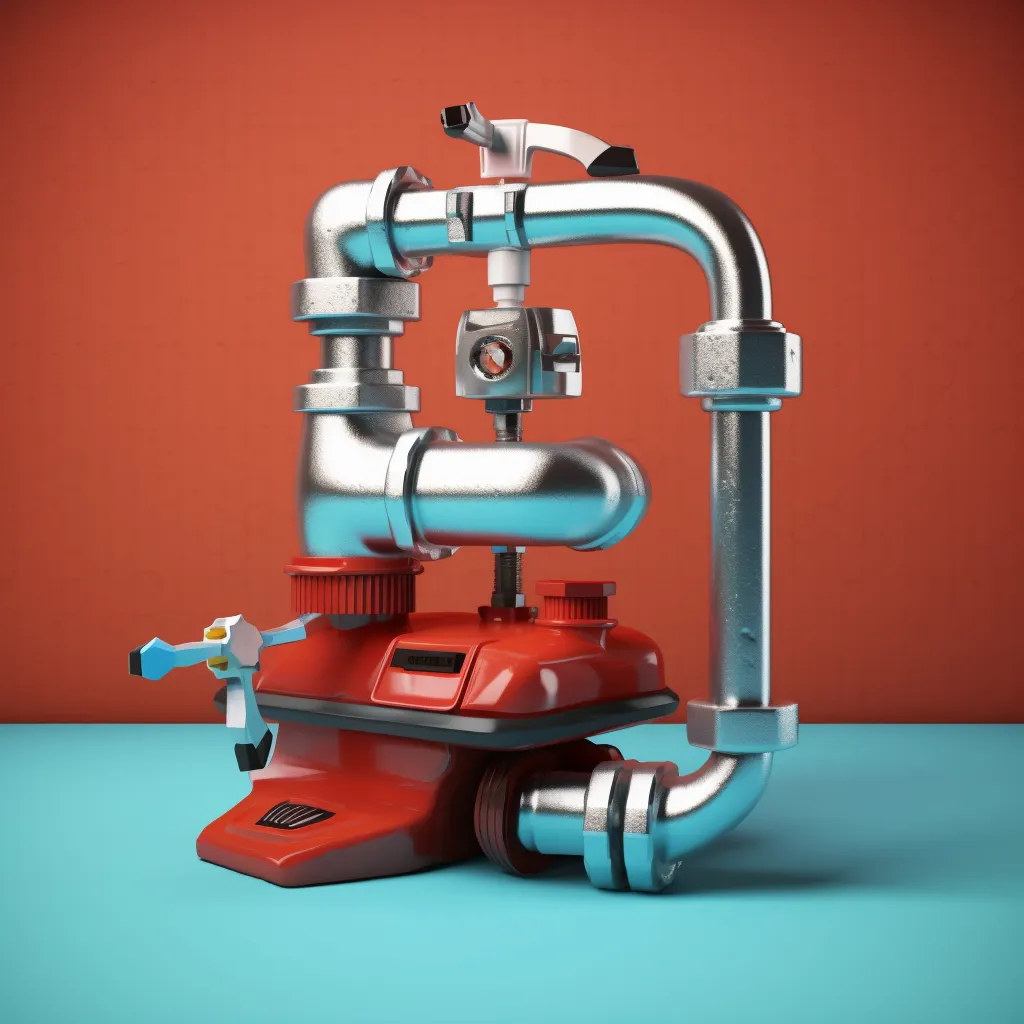
Water Heater Age: Consider replacement if it's over 10 years old.
Strange Noises: Popping or gurgling sounds may signal the need for a new tank.
Water Pooling: Address water pooling around the base promptly, as it could indicate a leak.
Hot Water Issues: Frequent outages or inconsistent heating may indicate a malfunctioning heater.
Increased Energy Bills: A sudden spike in energy costs may warrant replacement.
Frequent Repairs: If repairs are frequent, investing in a new unit may be more cost-effective.
Rust or Corrosion: Rusty or corroded areas signal suboptimal functioning and may need replacement.
Unusual Taste or Odor: Consider replacement if hot water has an odd taste or odor.
Insufficient Hot Water: Consistent lack of enough hot water indicates a need for replacement.
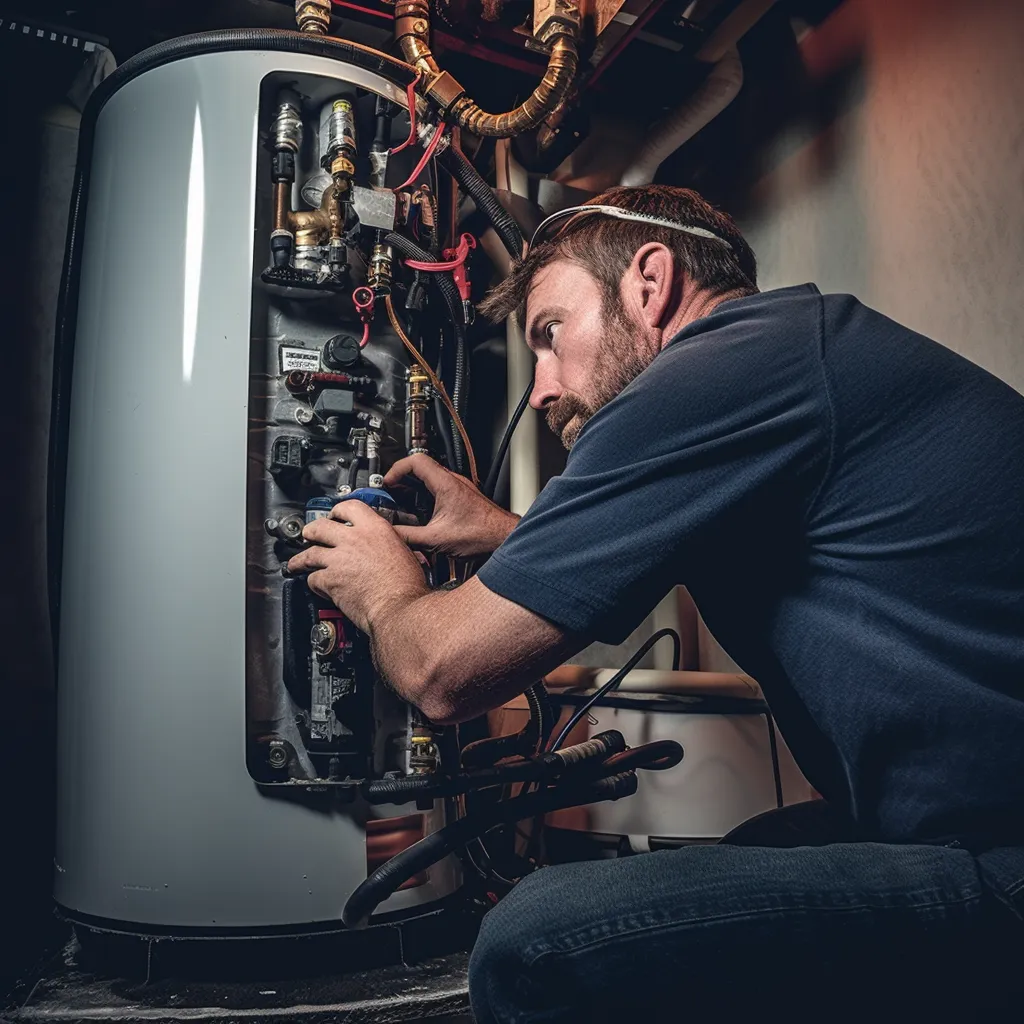
By paying attention to these warning signs, you can make an informed decision about replacing your water heater and ensure a reliable supply of hot water for your home.
What is the cost of replacing
a water heater?
Being aware of these warning signs will help you make an informed decision about replacing your water heater. Promptly addressing any issues can prevent unexpected breakdowns and ensure a consistent and reliable supply of hot water for your home. Regularly monitoring your water heater's performance and seeking professional advice when needed will enable you to take proactive steps to maintain your water heating system and avoid potential inconveniences.

Type and Size: The cost of the water heater will depend on the type (tank-based or tankless) and the required size to meet your household's hot water needs.
Energy Efficiency: Energy-efficient models may have a higher upfront cost but can lead to long-term savings on energy bills, making them cost-effective over time.
Installation Requirements: Installation complexity, including accessibility, venting, and plumbing modifications, can influence the overall cost of the water heater.
Replacing a water heater is a significant investment, and the costs can vary based on several factors. For standard electric water heaters, replacement costs typically range from $500 to $2,500, while repair costs for tankless water heaters can be higher, ranging from $1,000 to $3,500.
Considering the substantial expenses involved in water heater replacement, it's essential to recognize the long-term benefits. Opting for a high-quality unit can result in reduced utility bills and improved energy efficiency, making it a valuable and cost-effective investment over time. By choosing a reliable and efficient water heater, you can enjoy consistent hot water while also saving money on your energy bills in the future.
Common frequently asked questions about replacing and installing a water heater
Here are some frequently asked questions related to water heater replacement and installation:
What size water heater do I need?
How long does the installation process typically take?
Which fuel source is recommended for my water heater?
What is the estimated cost of the replacement?
Is professional assistance necessary for the installation?
Considering your specific needs is crucial when it comes to water heater replacement or installation. Consulting licensed plumbers is essential to receive reliable guidance throughout the process. They have the expertise to help you choose the right size and type of water heater that perfectly suits your home and hot water requirements. Additionally, licensed plumbers can provide accurate estimates for the installation costs and any additional work that might be necessary to ensure a smooth and efficient installation. Relying on their professional advice will ensure that your water heater replacement or installation meets your needs and is done correctly.
How you can save money
when replacing a hot water heater
Replacing a hot water heater doesn't have to be expensive. To achieve a cost-effective replacement without compromising hot water access, follow these money-saving tips:

Compare Prices: Obtain quotes from multiple suppliers and installation services to find the most budget-friendly option.
Energy Efficiency: Invest in an energy-efficient water heater, as it can lead to long-term savings on utility bills.
Rebates and Incentives: Check for available rebates or incentives for purchasing energy-efficient water heaters in your area.
Professional Installation: While it may seem tempting to DIY, hiring a professional plumber can ensure proper installation and prevent costly mistakes.
Proper Sizing: Choose the right-sized water heater for your household's needs to avoid excessive costs.
Regular Maintenance: Maintain your new water heater through regular checks and proper maintenance to prolong its lifespan and prevent major repairs.
Water Heater Timers: Consider installing a timer to control when the water heater operates, reducing unnecessary energy consumption.
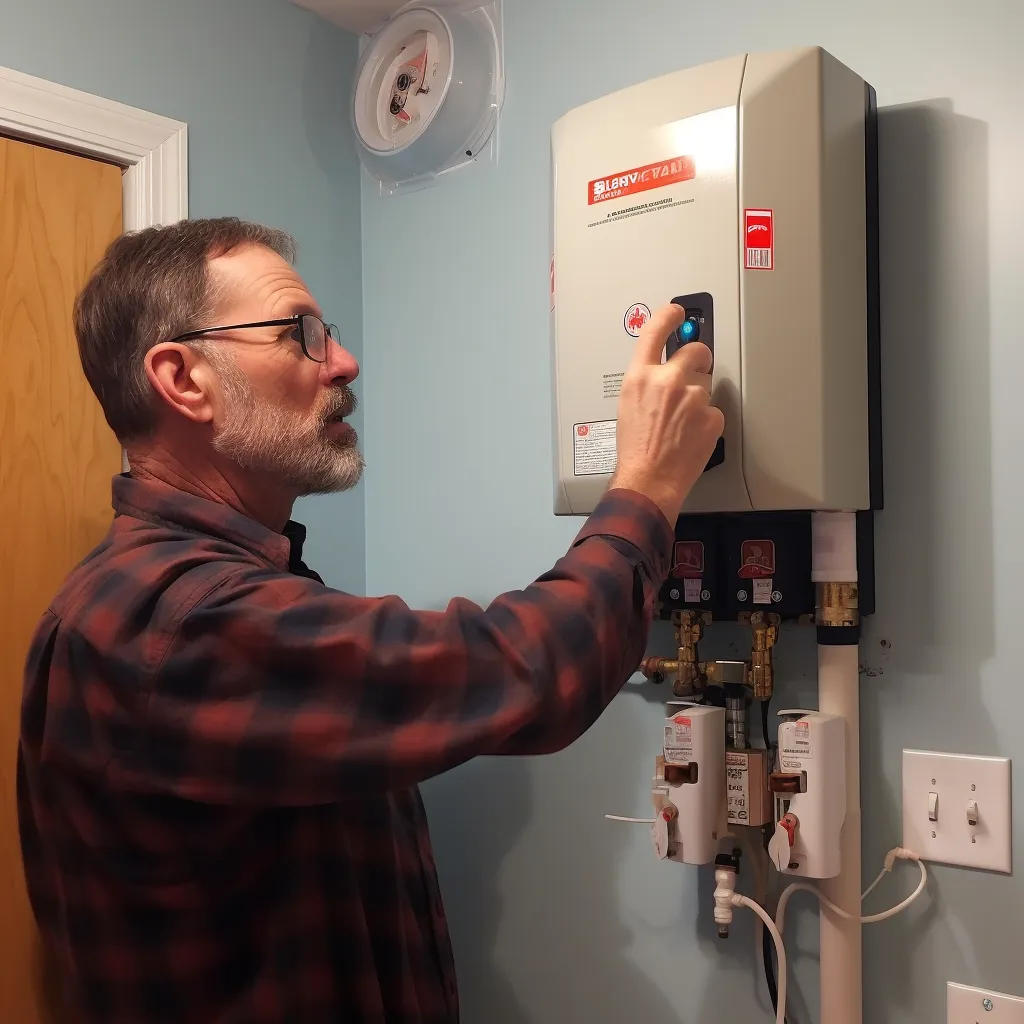
Why you should hire a professional
vs DIY installation
of a water heater
Replacing an old hot water heater may seem like a cost-saving idea, but it can be a complex task that requires specific skills and knowledge. While it might be tempting to attempt the installation yourself, hiring a professional is the best course of action.
Professionals have the expertise to ensure the installation is done correctly, adhering to all necessary codes and regulations. Additionally, professional installations often come with warranties, providing added peace of mind and a hassle-free experience.
Conversely, DIY installations can lead to errors, potentially resulting in further expenses like repairs or increased energy usage. It's essential to recognize the value of professional installation to avoid potential problems and ensure a safe, efficient, and cost-effective replacement process.
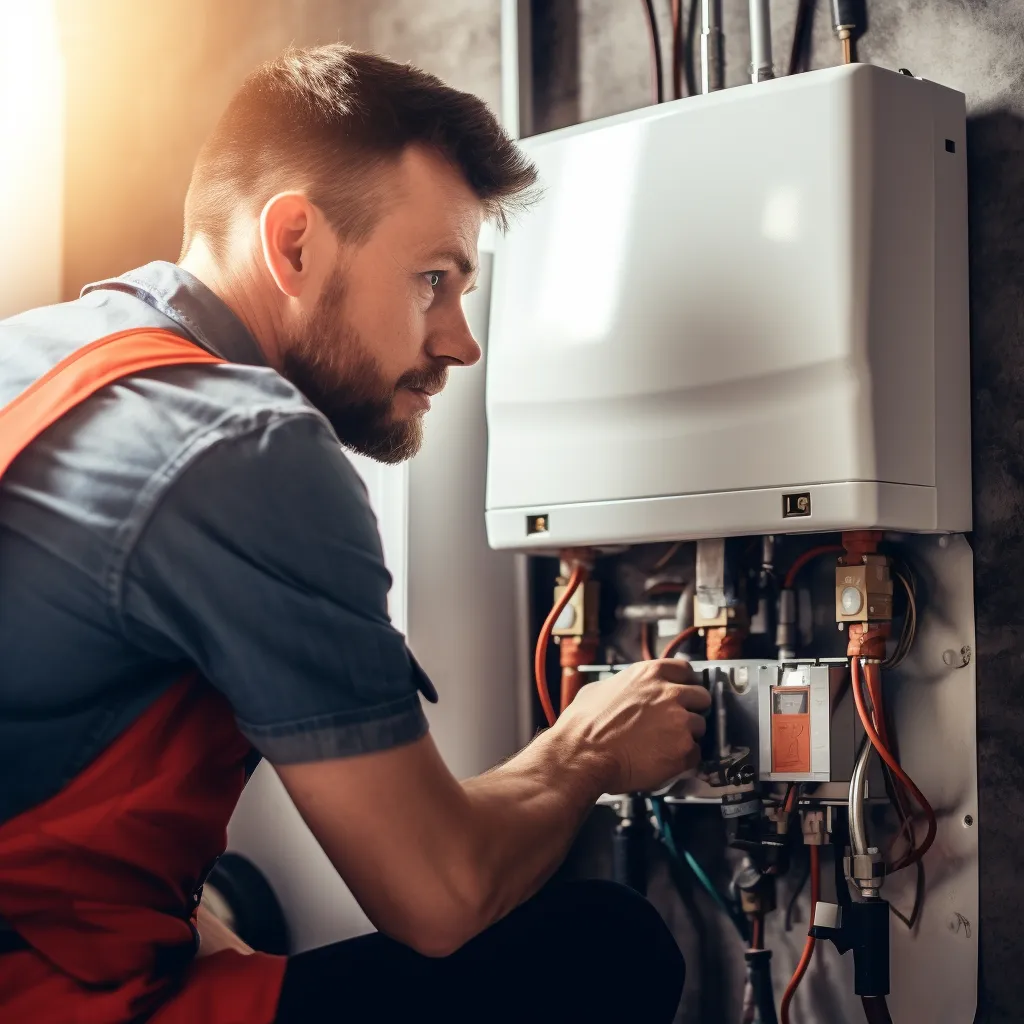
Tips on finding a water heater professional for installation
When selecting a professional for water heater replacement or installation, follow these essential steps:

Check credentials and ensure they are licensed for the job.
Consider their experience and expertise in water heater services.
Read reviews to assess their reputation and customer satisfaction.
Verify insurance coverage to ensure protection in case of accidents.
Obtain detailed cost estimates from multiple professionals to compare prices.
Inquire about warranties or guarantees offered on their services.
Confirm that they will handle necessary permits and comply with regulations.
Choose a professional who communicates effectively and transparently throughout the process.
Contact Us
GET IN FULL TOUCH
PHONE: (209) 370-0794
EMAIL:
orlando@waterheatermodesto.com
Westside Plumbing
Modesto, CA 95354
